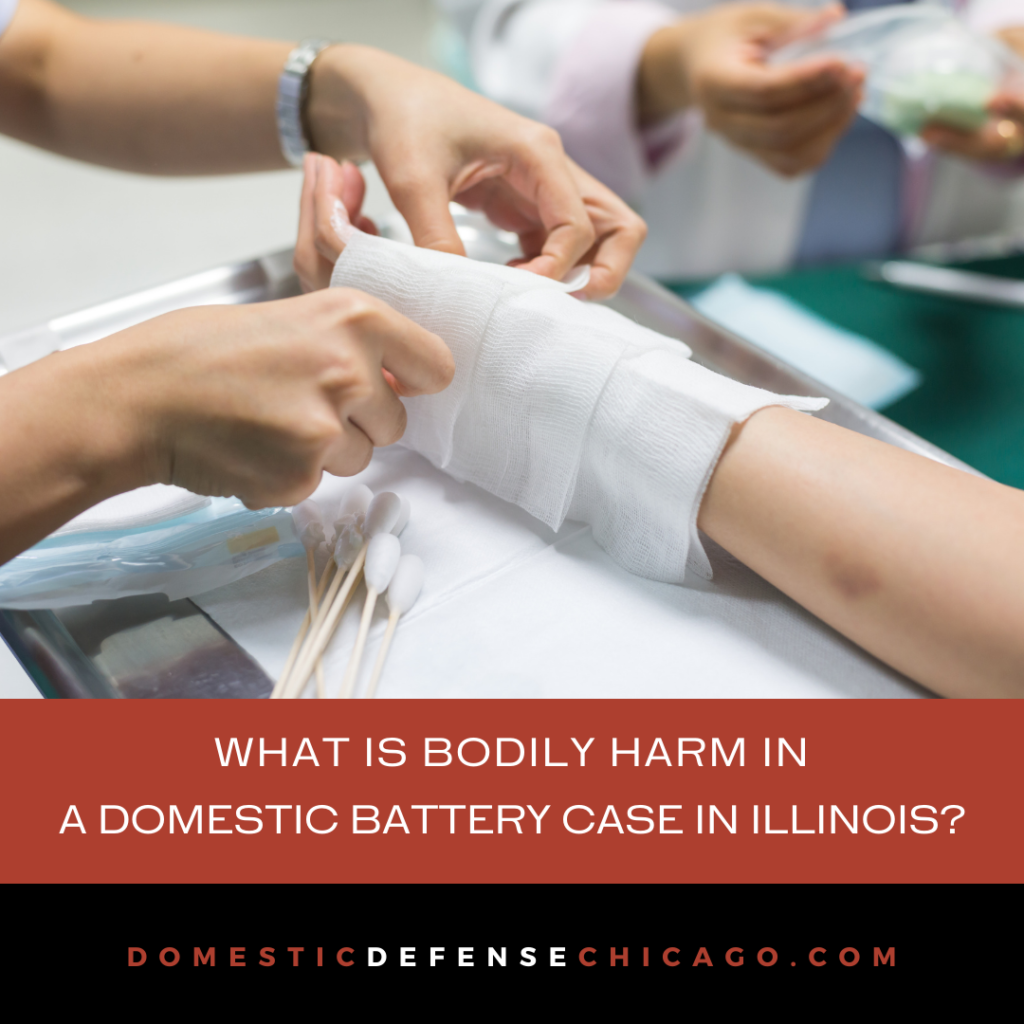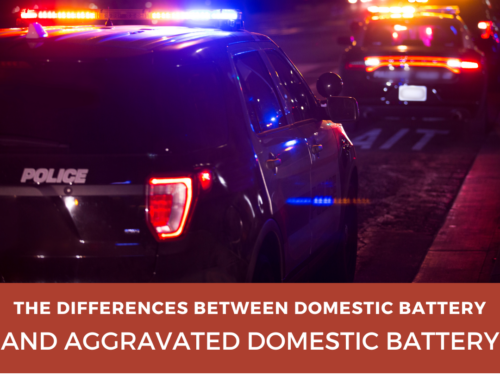If you are familiar with domestic battery laws in Illinois, you may have heard the phrase bodily harm before. But what does it mean? This guide explains.
What is Bodily Harm in a DV Case?
In a domestic violence case, bodily harm refers to a hurt or injury that a person suffers that interferes with their health or comfort. Bodily harm can be:
- Lacerations (cuts)
- Bruises
- Abrasions (scrapes)
- Physical pain
- Other damage to the body
However, you need to know that in a domestic battery case, proving that someone was physically harmed is not necessary to get a conviction. In fact, a person can be charged with and convicted of domestic battery in the state of Illinois simply by making physical contact of an insulting or provoking nature with any family or household member. That means pushing, shoving, or even restricting the personal freedom of another person can result in imprisonment for domestic battery conviction.
Related: Can you do anything if someone lies to police about domestic battery?
How is Great Bodily Harm Different From Bodily Harm?
Great bodily harm is more serious than bodily harm. In court, if someone wants to prove great bodily harm, they must show that a person’s injuries were more serious than those related to bodily harm. Broken bones, serious lacerations, and a variety of other injuries may count as great bodily harm.
In a domestic violence case in the state of Illinois, a person who has caused great bodily harm can be found guilty of aggravated domestic battery. Aggravated domestic battery is a more serious offense then domestic battery is, and it comes with harsher penalties. In fact, aggravated domestic battery is a Class 2 felony that carries a penalty of three to seven years of imprisonment. And for people who have been convicted of aggravated domestic battery in the past, the prison sentence can be as long as 14 years.
Related: What judges consider before issuing an order of protection
Do You Need to Talk to an Attorney About Domestic Battery Defense?
If you need to talk to a domestic battery defense attorney in Illinois, we’re here to help. Call us at 847-920-4540 now – we’ll be happy to give you a free consultation and talk to you about your options.







Leave A Comment
You must be logged in to post a comment.